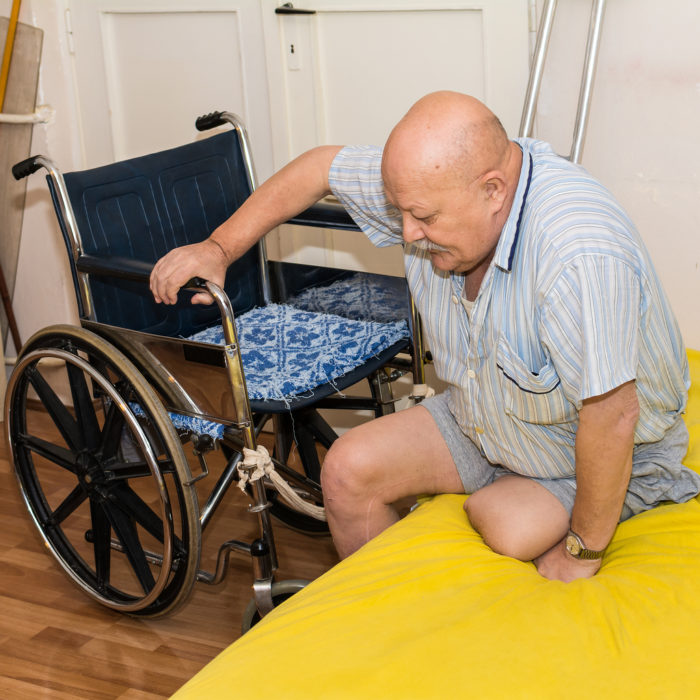Nursing Home Nightmares — Beyond poor care
The lack of good care in nursing homes is a very real problem. Owners trying to enhance the bottom line often run with thin staffs, and it is the patient who suffers. For example, bed sores can cause terrible injuries and often death, but they never should happen. Sadly, in my practice, I have seen all too many victims of nursing home neglect and abuse.
The federal government agrees. In a new report by the Office of Inspector General (OIG), of the U.S. Department of Health and Human Services, physical abuse in facilities across the country goes grossly underreported. The report’s subject line says it all: “Early Alert: The Centers for Medicare & Medicaid Services Has Inadequate Procedures To Ensure That Incidents of Potential Abuse or Neglect at Skilled Nursing Facilities Are Identified and Reported in Accordance With Applicable Requirements.”
“OIG is committed to protecting beneficiary health and safety,” Inspector General Daniel Levinson states in the alert, which was sent to Seema Verma, head of the Centers for Medicare & Medicaid Services. “To that end, OIG has issued numerous reports that have detailed problems with the quality of care and the reporting and investigation of potential abuse or neglect at group homes, nursing homes, and SNFs [skilled-nursing facilities].”
The study’s statistics show that nursing homes failed to report 15 percent of critical incidents that occurred onsite to the proper agencies. Further, they show that almost one-quarter of the nursing-home patients in the study were victims of critical incidents, which include bed sores, bleeding, bruising and infections. The statistics get worse.
“Medical record review determined that 69 percent of these patient-harm events could have been prevented had the SNF provided better care,” according to the alert. “Over half of the residents harmed during their SNF stays required hospital care to treat the adverse event.”
Nursing homes are required to report critical incidents within certain timeframes under state law. In Florida, that timeframe is 15 days. The statute reads, “The nursing home facility shall initiate an investigation within 1 business day after the risk manager or his or her designee has received a report pursuant to paragraph (1)(d). The facility must complete the investigation and submit a report to the agency within 15 calendar days after the adverse incident occurred.”
The OIG’s findings drive home the fact that the law is not being followed. Of the 134 nursing-home patients in the study who were identified as having diagnoses codes on their records indicative of physical – and sexual – abuse, nearly 30 percent of the crucial incidents were not reported to the police, even though often the patients ended up in the hospital.
“These are cases of abuse severe enough to send someone to the emergency room,” according to an article on NPR’s Web site titled “Serious Nursing Home Abuse Often Not Reported To Police, Federal Investigators Find.” “One example cited in the alert is a woman who was left deeply bruised after being sexually assaulted at her nursing home. Federal law says that incident should have been reported to the police within two hours.”
Levinson said Verma must take immediate steps to quantify physical and sexual abuse taking place in the United States. The agency has counted an approximate 16,000 nursing homes that participate in Medicare and Medicaid, and those facilities serve nearly 1.5 million seniors.
“There’s never an excuse to allow somebody to suffer this kind of torment, really, ever,” Curtis Roy, an inspector general at the U.S. Department of Health and Human Services,” told NPR. “We’ve got to do a better job….”
Family members with loved ones in nursing homes should remain vigilant. Ask how they are feeling. Ask how the staff is treating them. Ask if they have any complaints. Ask if anything has changed in their physical condition from day to day.
“If you suspect neglect, abuse or exploitation you are asked to report it to authorities,” ABC Action News in Tampa, Fla., advises in an article titled “How to protect nursing home residents and report suspected abuse or neglect.” “Take photos, write down the name and age of the victim, your relationship to the victim, the name and address of the facility, the date, times and locations of the incident, the description of the incident or nature of the abuse, the name of the caretaker involved and any witnesses who saw the abuse.”
The Agency for Health Care Administration in Tallahassee, Fla., accepts complaints by phone (888-419-3456) or by online form. After a complaint is filed, it immediately is forwarded to the Complaint Administration Unit, where it is reviewed and assigned priority.
The lack of good care in nursing homes is a very real problem and a very rampant one.
Share This



